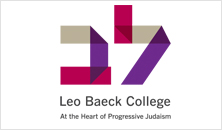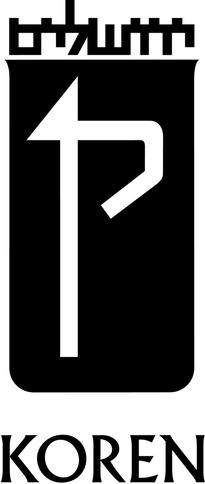
In Judaism, the concept of the Jews as the chosen people is the belief that the Jews, via descent from the ancient Israelites, are the chosen people, i.e. selected to be in a covenant with God. The idea of the Israelites being chosen by God is found most directly in the Book of Deuteronomy as the verb baḥar (בָּחַר), and is alluded to elsewhere in the Hebrew Bible using other terms such as "holy people". Much is written about these topics in rabbinic literature. The three largest Jewish denominations—Orthodox Judaism, Conservative Judaism and Reform Judaism—maintain the belief that the Jews have been chosen by God for a purpose. Sometimes this choice is seen as charging the Jewish people with a specific mission—to be a light unto the nations, and to exemplify the covenant with God as described in the Torah.

Moses ben Maimon (1138–1204), commonly known as Maimonides and also referred to by the acronym Rambam, was a Sephardic Jewish philosopher who became one of the most prolific and influential Torah scholars of the Middle Ages. In his time, he was also a preeminent astronomer and physician, serving as the personal physician of Saladin. Born in Córdoba within the Almoravid Empire, on Passover eve, 1138, he worked as a rabbi, physician and philosopher in Morocco and Egypt.

In Judaism, the Seven Laws of Noah, otherwise referred to as the Noahide Laws or the Noachian Laws, are a set of universal moral laws which, according to the Talmud, were given by God as a covenant with Noah and with the "sons of Noah"—that is, all of humanity.

There is no established formulation of principles of faith that are recognized by all branches of Judaism. Central authority in Judaism is not vested in any one person or group - although the Sanhedrin, the supreme Jewish religious court, would fulfill this role if it were re-established - but rather in Judaism's sacred writings, laws, and traditions.
Ahikam was one of the five whom, according to the Hebrew Bible, Josiah sent to consult the prophetess Huldah in connection with the discovery of the book of the law.

Rizpah was the daughter of Aiah, and one of Saul's concubines. She was the mother of Armoni and Mephibosheth.

Jewish philosophy includes all philosophy carried out by Jews, or in relation to the religion of Judaism. Until modern Haskalah and Jewish emancipation, Jewish philosophy was preoccupied with attempts to reconcile coherent new ideas into the tradition of Rabbinic Judaism, thus organizing emergent ideas that are not necessarily Jewish into a uniquely Jewish scholastic framework and world-view. With their acceptance into modern society, Jews with secular educations embraced or developed entirely new philosophies to meet the demands of the world in which they now found themselves.
Religious pluralism is a set of religious world views that hold that one's religion is not the sole and exclusive source of truth, and thus recognizes that some level of truth and value exists in other religions. As such, religious pluralism goes beyond religious tolerance, which is the condition of peaceful existence between adherents of different religions or religious denominations.

Islamic–Jewish relations comprise the human and diplomatic relations between Jewish people and Muslims in the Arabian Peninsula, Northern Africa, the Middle East, and their surrounding regions. Jewish–Islamic relations may also refer to the shared and disputed ideals between Judaism and Islam, which began roughly in the 7th century CE with the origin and spread of Islam in the Arabian peninsula. The two religions share similar values, guidelines, and principles. Islam also incorporates Jewish history as a part of its own. Muslims regard the Children of Israel as an important religious concept in Islam. Moses, the most important prophet of Judaism, is also considered a prophet and messenger in Islam. Moses is mentioned in the Quran more than any other individual, and his life is narrated and recounted more than that of any other prophet. There are approximately 43 references to the Israelites in the Quran, and many in the Hadith. Later rabbinic authorities and Jewish scholars such as Maimonides discussed the relationship between Islam and Jewish law. Maimonides himself, it has been argued, was influenced by Islamic legal thought.

The Mishneh Torah, also known as Sefer Yad ha-Hazaka, is a code of Rabbinic Jewish religious law (halakha) authored by Maimonides. The Mishneh Torah was compiled between 1170 and 1180 CE, while Maimonides was living in Egypt, and is regarded as Maimonides' magnum opus. Accordingly, later sources simply refer to the work as "Maimon", "Maimonides", or "RaMBaM", although Maimonides composed other works.
Most adherents of Judaism believe that Jesus of Nazareth was not the Messiah nor "the Son of God". In the Jewish perspective, most will argue that the way Christians see Jesus goes against monotheism, a belief in the absolute unity and singularity of God, which is central to Judaism; the worship of a person is seen by them as a form of idolatry. Therefore, considering Jesus a deity is forbidden according to Judaism. Judaism's rejection of Jesus as the Messiah is based on Jewish eschatology, which holds that the coming of the true Messiah will be associated with events that have not yet occurred, such as the rebuilding of The Temple, a Messianic Age of peace, and the ingathering of Jews to their homeland.

Jonathan Henry Sacks, Baron Sacks was an English Orthodox rabbi, philosopher, theologian, and author. Sacks served as the Chief Rabbi of the United Hebrew Congregations of the Commonwealth from 1991 to 2013. As the spiritual head of the United Synagogue, the largest synagogue body in the United Kingdom, he was the Chief Rabbi of those Orthodox synagogues but was not recognized as the religious authority for the Haredi Union of Orthodox Hebrew Congregations or for the progressive movements such as Masorti, Reform, and Liberal Judaism. As Chief Rabbi, he formally carried the title of Av Beit Din (head) of the London Beth Din. At the time of his death, he was the Emeritus Chief Rabbi.

David Kimhi (1160–1235), also known by the Hebrew acronym as the RaDaK (רַדָּ״ק), was a medieval rabbi, biblical commentator, philosopher, and grammarian.

Shiphrah and Puah were two midwives who briefly prevented a genocide of children by the Egyptians, according to Exodus 1:15–21. According to the Exodus narrative, they were commanded by the King of Egypt, or Pharaoh, to kill all male Hebrew babies, but they refused to do so. When challenged by the Pharaoh, they told him that Hebrew women's labour was short-lived because they were 'lively' or 'vigorous', and therefore the babies had been born before the midwives arrived. God "dealt well with the midwives" and "made them houses".

Leo Baeck College is a privately funded rabbinical seminary and centre for the training of teachers in Jewish education. Based now at the Sternberg Centre, East End Road, Finchley, in the London Borough of Barnet, it was founded by Werner van der Zyl in 1956 and is sponsored by The Movement for Reform Judaism, Liberal Judaism and the United Jewish Israel Appeal. It is named after the inspirational 20th-century German Liberal rabbi Leo Baeck.
Anthony Michael "Tony" Bayfield is a Reform rabbi and former President of the Movement for Reform Judaism, the second largest organisation of synagogues in Britain.

Jonathan Anidjar Romain is a writer and broadcaster and director of Maidenhead Synagogue in Berkshire, England. He has a PhD in the history of British Jewry. He writes for The Times,The Independent, The Guardian, The Huffington Post, and The Jewish Chronicle and appears on radio and television.

Koren Publishers Jerusalem is an Israeli publisher of Jewish religious texts. It was established in 1961 by Eliyahu Koren, with the aim of publishing the first Hebrew Bible designed, edited, printed, and bound by Jews in nearly 500 years. It produced The Koren Bible in 1962, The Koren Siddur in 1981, and the Koren Sacks Siddur in 2009, in addition to numerous editions of these books and other religious texts in Hebrew, English, and other languages.
Sybil Ann Sheridan is a writer and British Reform rabbi. She was chair of the Assembly of Reform Rabbis UK at the Movement for Reform Judaism from 2013 to 2015 and was Rabbi at Wimbledon and District Synagogue in south west London. As of 2020 she is part-time rabbi at Newcastle Reform Synagogue.
Sylvia Rothschild is a British Reform rabbi. Together with Rabbi Sybil Sheridan, she was Rabbi of Wimbledon and District Synagogue in south west London, from 2003 to 2014, in the first ever rabbinic job share in England. She was Rabbi of Bromley Reform Synagogue from 1987 to 2002, and is currently the Rabbi at Lev Chadash in Milan.












